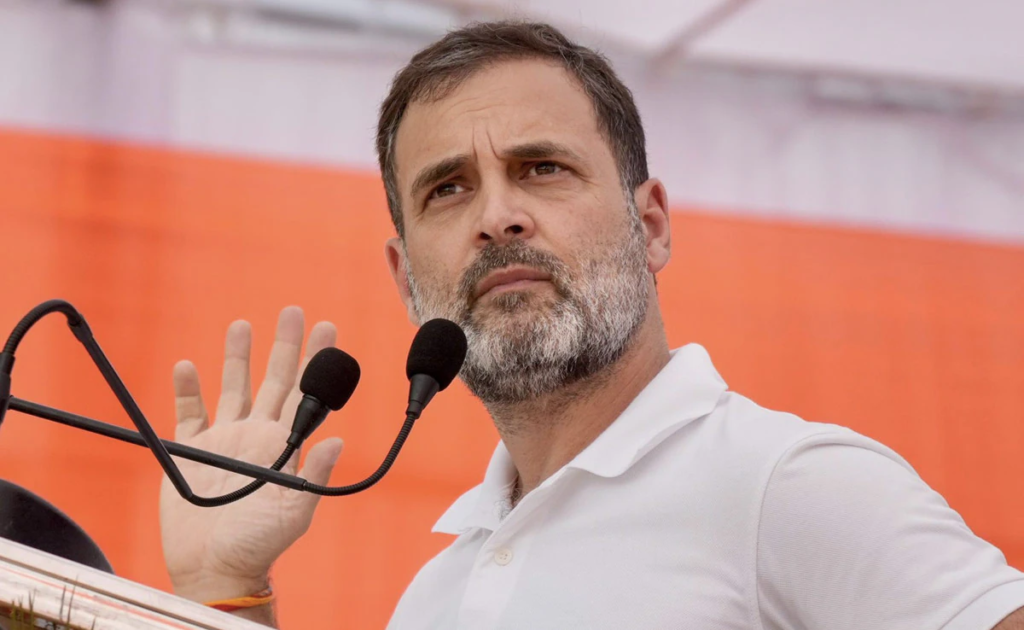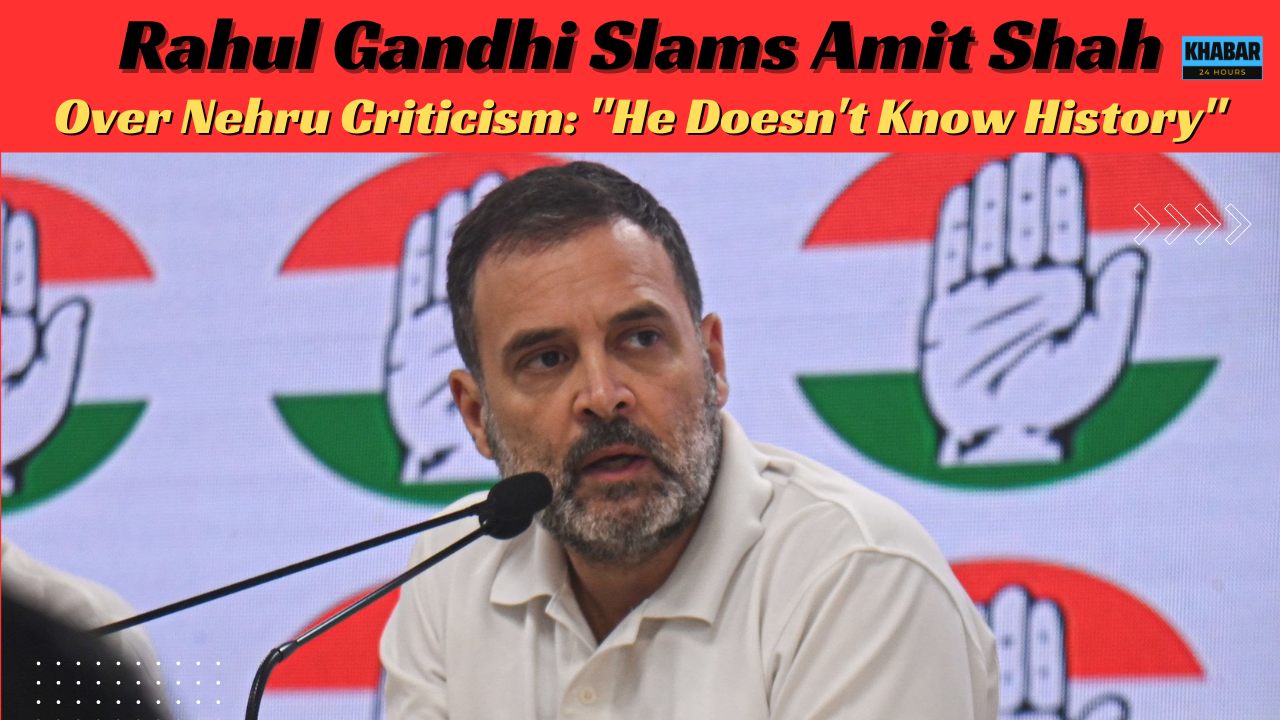
Rahul Gandhi Slams Amit Shah Over Nehru Criticism: “He Doesn’t Know History”
In a sharp retort to Home Minister Amit Shah’s recent criticism of Jawaharlal Nehru, Congress leader Rahul Gandhi has accused Shah of being “unaware of history.”
Gandhi’s remarks came in response to Shah’s claims that Nehru committed two “major blunders” regarding Kashmir: declaring a ceasefire in the 1948 war with Pakistan and taking the issue to the United Nations.
Amit Shah, India’s Home Minister, has sparked controversy by blaming Jawaharlal Nehru, the country’s first Prime Minister, for two “major blunders” related to Kashmir. These alleged blunders include:
- Declaring a ceasefire in the 1948 war with Pakistan: Shah argues that if the ceasefire had not been declared, India could have captured Pakistan-occupied Kashmir (PoK).
- Taking the Kashmir issue to the United Nations: Shah believes that this internationalized the issue and created a complex mess.
Shah’s comments have generated a heated debate, with supporters and detractors offering contrasting perspectives. Here are 5 key points to consider:
1. Significance of the Ceasefire:
- The 1948 war ended with a UN-brokered ceasefire, leaving Kashmir divided between India and Pakistan.
- Shah claims that the ceasefire was premature and prevented India from achieving a complete victory.
- Historians have debated the feasibility of India capturing PoK, considering logistical challenges and international pressure.
2. Taking Kashmir to the UN:
- Nehru took the Kashmir issue to the UN in 1948 seeking intervention and a peaceful resolution.
- Shah criticizes this decision, arguing it complicated the issue and gave Pakistan a platform to raise its claims.
- Others argue that international involvement was necessary to prevent further escalation and potentially bring a lasting solution.
3. Historical Context:
- Evaluating historical decisions requires considering the specific context and available information.
- Critics of Shah’s comments argue that he is applying hindsight and ignoring the complexities of the situation in 1948.
- They also point to Nehru’s achievements in other areas, such as building India’s institutions and fostering international relations.
4. Political Motivations:
- Shah’s remarks are seen by some as an attempt to score political points against the Congress party, which Nehru led.
- The BJP, of which Shah is a prominent member, has a long history of criticizing Nehru’s policies.
- This debate highlights the ongoing political appropriation of history in India.
5. Implications for Kashmir:
- The blame game over Nehru’s decisions does little to resolve the actual conflict in Kashmir.
- Both India and Pakistan need to engage in meaningful dialogue and address the underlying grievances of the Kashmiri people.
- Focusing on historical blame might hinder progress towards a peaceful and sustainable resolution.
This issue remains a complex and contested aspect of India’s history. By understanding the different perspectives and considering the historical context, readers can form their own informed opinions on this ongoing debate.

